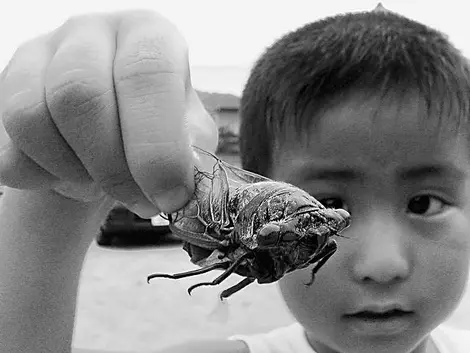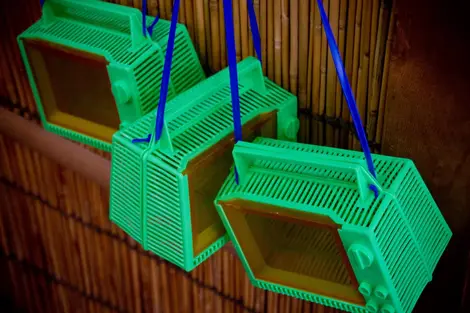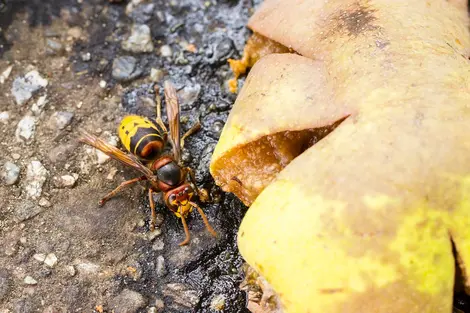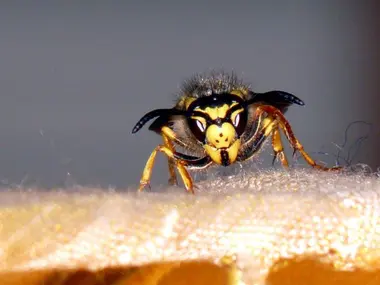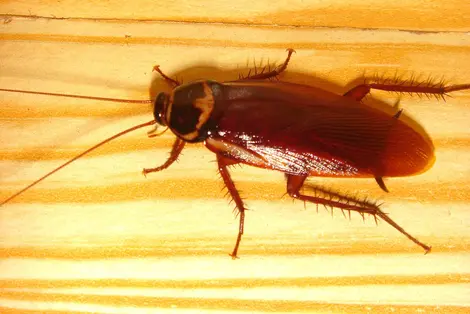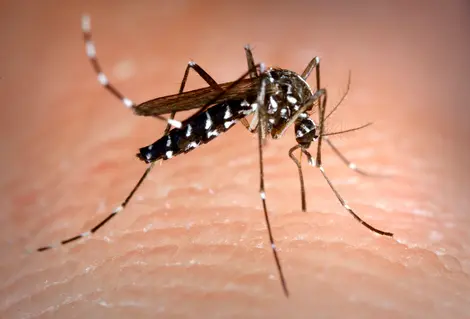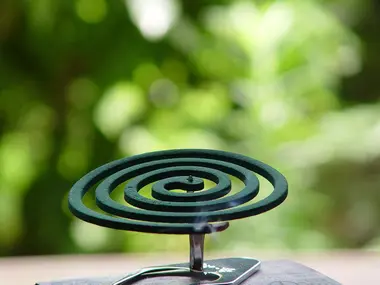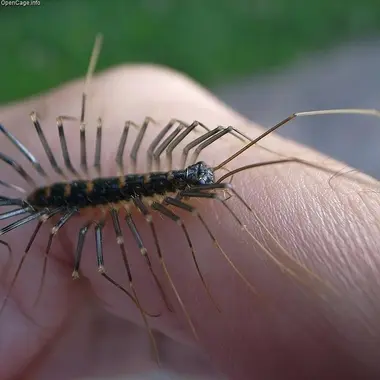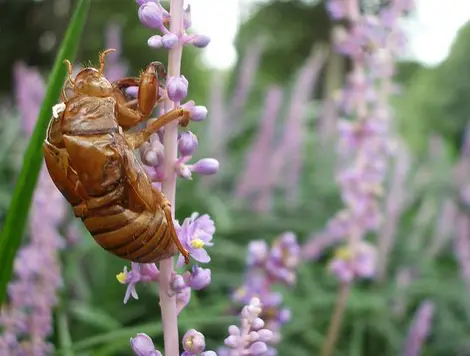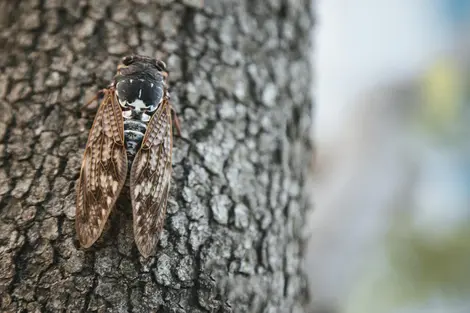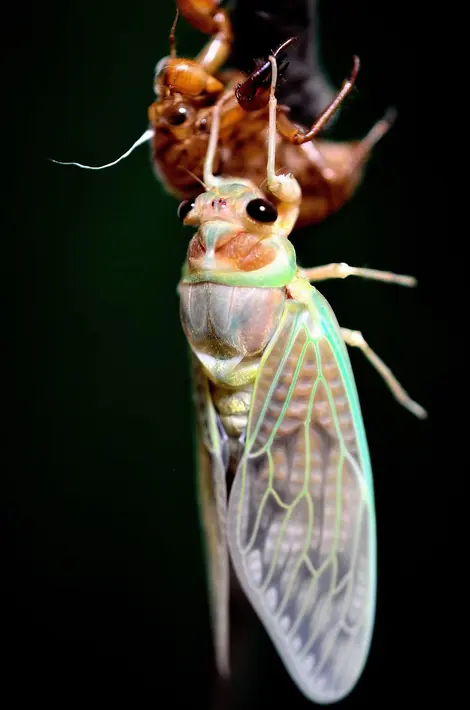Japanese insects 虫
Beware of pests
Before getting on the plane, be sure you're ready to face the crawling and flying critters that you will surely encounter in Japan!
Traveling in summer is not always the best option, especially in Japan! The sweltering heat and stifling humidity are already difficult to endure, so we could definitely do without Japanese insects... Read on to learn how to manage these unwanted creatures who could disrupt your stay!
Take cover!
- The giant Japanese hornet, or suzumebachi
Known to devour whole colonies of bees, it's best to avoid these enormous hornets (the world's largest, at up to 4.5cm/1.8in), with a large yellow head and painful sting if you can. Seen from late spring to autumn throughout the country, it is particularly present in rural areas. Be careful when you go hiking, because despite the sting of a single hornet rarely causing complications, disturbing a nest of them can be fatal! Indeed, this large, aggressive hornet with powerful venom is responsible for the deaths of around a dozen people each year in Japan.
Some preventive tips:
- Wear light-colored clothing.
- Have antihistamine cream in your bag.
- If stung, try to extract the stinger and squeeze (don't suck) as much venom as possible before applying cream.
- Go to the hospital for a checkup even if the wound seems okay. The phrase "I was stung by a giant hornet" is "Suzumebachi ni sasaremashita" in Japanese ( スズメバチに刺されました).
- The Japanese giant centipede, or mukade
It's not an insect, strictly speaking, since it's a myriapode. But if you meet one that won't matter, so we couldn't ignore this beast that's been the stuff of Japanese legends for a long time.
Usually feeding on insects and spiders, a large specimen (up to 20cm long!) won't hesitate to attack small mammals, such as mice, that get in their way. Like many pests, it appears during the rainy season, and therefore in summer. It'll take more than a broom to chase it away, because the mukade is very territorial. Forget bug bombs, if you ask a Japanese grandmother, she'll tell you to attack one with boiling water.
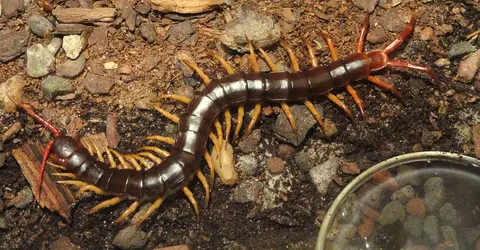
A mukade, Japanese giant centipede
If it were just roaming harmlessly around the house, we could maybe learn to live with it. But no, it rejects peaceful cohabitation and attacks anyone who dares to disturb it. As a frame of reference, know that the bite of a mukade is around 10 times worse than a bee sting! However, don't worry about any after-effects, the pain disappears after a day or two without consequences.
Public Enemies
- Cockroaches, or gokiburi
Admittedly they are not the most pleasant, but you'll have to get used to their presence because they are everywhere in Japan. Your apartment could be clean as a whistle, but this won't prevent a cockroach infestation. Unlike in the West where they're often a symbol of dirt or negligence, it's simply the Japanese climate that creates a perfect environment for them.
But don't give up the fight! Arm yourself with traps and other specialized products to eradicate these gokiburi. They can be more than 4cm long, are very fast and are more resistant than their European counterparts. A final tip, never squash a cockroach, you could end up with a colony of them a few days later if it was carrying eggs.
- Mosquitoes, or ka
In addition to air conditioning in almost every room, your second ally against these creatures will be a mosquito net! While in the West we simply avoid leaving the window open when the lights are on at night, this won't save you from Japanese mosquitoes. Tiger mosquitoes are unfortunately very common in Japan, where they sow panic day and night.
While the health threat should not overly concern you, the bites can quickly become a daily ordeal as they can be very itchy, red and painful, especially for someone who has an allergic reaction. But again, you can find many products to help you defend yourself in supermarkets.
Anti-mosquito products
- The word kayoke 蚊除け indicates that a product repels mosquitoes, katori 蚊取り that it kills them.
- To ward off mosquitoes on summer evenings use spiral incense, it's called katorisenko 蚊取り線香.
- You will also find electronic diffusers, called denshikatoriki 電子蚊取り器
The harmless
- House centipedes, or gejigeji
Don't be too quick to judge them, because gejigeji are there to help you! This friendly centipede will hunt for all the little insects you don't want to see hanging around your house. If his appearance disgusts you, feel free to kindly show him the door. But think twice about it: in exchange for letting him stay, the gejigeji is happy to eat bed bugs and the horrible roaches that creep everywhere.
- Cicadas, or semi
If you hear an impressive din when passing a tree - you know summer is here! Cicadas are present everywhere in Japan, and are very prevalent in popular culture. Children go hunting for the discarded skins left on the trunks after the first moulting of the animal. A gathering of cicadas can produce sounds up to 120 decibels, loud enough to cause hearing loss at close range! These small insects (which can still reach up to 7cm long in Japan) are completely harmless, except perhaps when they inadvertently fly into you. Avoid lingering under a tree at the end of the summer, because you do not want to have a shower of cicadas on your head.
Read more : Cicadas



